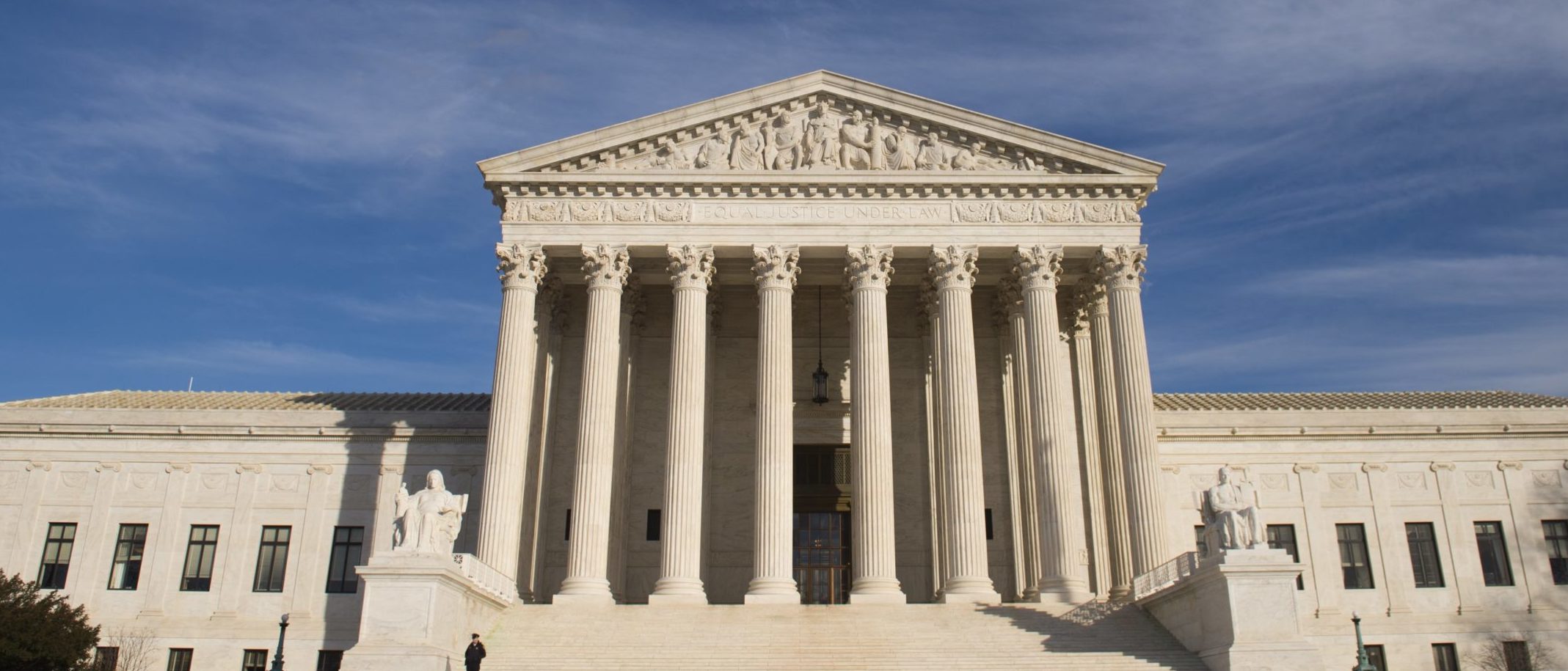The Supreme Court rolled back the Environmental Protection Agency’s (EPA) authority to regulate under the Clean Water Act (CWA) in a unanimous decision Thursday.
Sackett v. Environmental Protection Agency, brought by a couple prevented by the EPA from building a home on their own land near Priest Lake, Idaho because it contained wetlands, considered the scope of the agency’s “waters of the United States” (WOTUS) rule, which defines what “navigable waters” can be regulated under the CWA. Plaintiffs Chantell and Mike Sackett, who have spent 15 years fighting the agency’s rule in court, allege the EPA has overstepped the authority it was granted when Congress enacted the CWA in 1972—forcing them to stop construction on their land or face fines.
The Supreme Court sided with the Sacketts, determining their land is not covered under the text of the CWA, which gives the EPA authority to regulate “navigable waters.”
Justice Samuel Alito wrote in the majority opinion, which was joined by Chief Justice John Roberts and Justices Clarence Thomas, Neil Gorsuch and Amy Coney Barett, that the EPA’s interpretation “provides little notice to landowners of their obligations under the CWA.” The Court held that the CWA applies to only wetlands that are “as a practical matter indistinguishable from waters of the United States,” maintaining a “continuous surface connection.”(RELATED: Biden’s EPA Chief Says ‘Environmental Justice’ Is In Agency’s ‘DNA’)

The US Supreme Court is seen in Washington, DC, on January 31, 2017. – President Donald Trump was poised Tuesday to unveil his pick for the US Supreme Court, a crucial appointment that could tilt the bench to conservatives on deeply divisive issues such as abortion and gun control. Trump’s choice aims to fill a vacancy left by the sudden death of conservative justice Antonin Scalia in February 2016, which left the highest US court with four conservative and four liberal justices. (SAUL LOEB/AFP via Getty Images)
Though justices were united in their judgement, they maintained disagreements on definitions. Justice Brett Kavanaugh, in an opinion concurring in judgement that was joined by Justices Elena Kagan, Sonia Sotomayor and Ketanji Brown Jackson, thought the majority went too far in its test for which wetlands are included.
“By narrowing the Act’s coverage of wetlands to only adjoining wetlands, the Court’s new test will leave some long-regulated adjacent wetlands no longer covered by the Clean Water Act, with significant repercussions for water quality and flood control throughout the United States,” he wrote.
Kagan similarly said in an opinion joined by Sotomayor and Jackson that the majority has appointed itself as “the national decision-maker on environmental policy” by choosing a test that “prevents the EPA from keeping our country’s waters clean by regulating adjacent wetlands.”
“The eight administrations since 1977 have maintained dramatically different views of how to regulate the environment, including under the Clean Water Act,” she wrote, noting some “promulgated very broad interpretations of adjacent wetlands.”
“Yet all of those eight different administrations have recognized as a matter of law that the Clean Water Act’s coverage of adjacent wetlands means more than adjoining wetlands and also includes wetlands separated from covered waters by man-made dikes or barriers, natural river berms, beach dunes, or the like,” she wrote. “That consistency in interpretation is strong confirmation of the ordinary meaning of adjacent wetlands.”
The decision likely means that the Biden administration will need to go back to the drawing board on its new WOTUS rule issued in January, which Republicans and some Democrats have criticized for placing a burden on landowners, ranchers and farmers while dramatically expanding the EPA’s authority. Senate Minority Leader Mitch McConnell called it a “radical power grab that would give federal bureaucrats sweeping control over nearly every piece of land that touches a pothole, ditch, or puddle.”
In April, President Joe Biden vetoed a bipartisan bill to limit his administration’s WOTUS rule. Just days later, a federal court blocked the rule for 24 states that sued pending the Supreme Court’s decision.
“The Court’s ruling returns the scope of the Clean Water Act to its original and proper limits,” said Damien Schiff, a senior attorney at Pacific Legal Foundation who argued the case, in a statement. “Courts now have a clear measuring stick for fairness and consistency by federal regulators. Today’s ruling is a profound win for property rights and the constitutional separation of powers.”
All content created by the Daily Caller News Foundation, an independent and nonpartisan newswire service, is available without charge to any legitimate news publisher that can provide a large audience. All republished articles must include our logo, our reporter’s byline and their DCNF affiliation. For any questions about our guidelines or partnering with us, please contact licensing@dailycallernewsfoundation.org.


